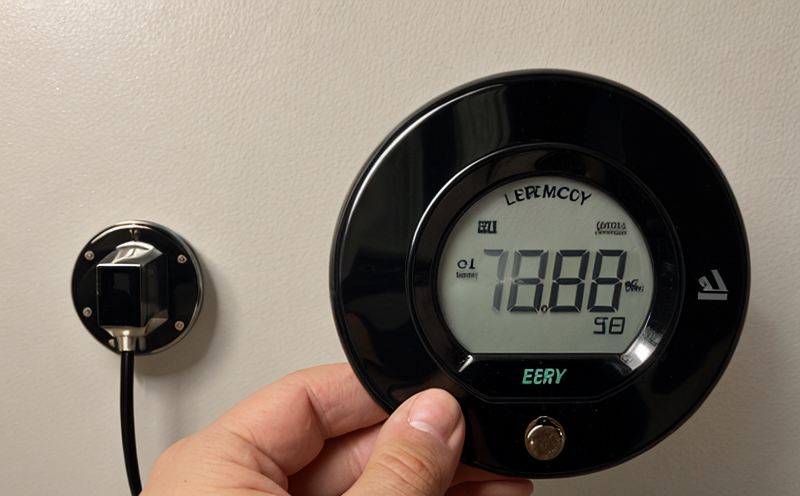CSA C373 Energy Performance Testing for Household Refrigerators
The CSA standard C373 is one of the most stringent and widely recognized energy efficiency standards for household refrigerators. This testing ensures that appliances meet rigorous performance criteria, contributing to reduced electricity consumption and lower environmental impact. Compliance with this standard not only helps manufacturers meet regulatory requirements but also enhances brand reputation by demonstrating a commitment to sustainability.
The test parameters include measuring the total daily electrical consumption (TDEC) under specific operating conditions such as full load, half load, and no-load scenarios. Specimen preparation involves ensuring that all refrigerators are in optimal working condition before testing. Instrumentation used includes advanced power meters capable of capturing minute-by-minute energy usage data over a 24-hour period.
Acceptance criteria for CSA C373 require that the total daily electrical consumption must not exceed specified limits set by the standard. These limits vary based on the type and capacity of the refrigerator being tested. For instance, an Energy Star certified unit typically has tighter restrictions compared to non-certified models.
The testing process involves multiple steps:
- Initial inspection of the appliance to ensure it meets all necessary specifications.
- Placement in a controlled environment designed to mimic real-world conditions.
- Running the refrigerator through standard operating procedures to establish baseline performance metrics.
- Data collection over several days using high-precision measurement devices.
- Analysis and validation of collected data against established criteria.
This method ensures accurate and reliable results, which are then reported in comprehensive technical documents. Compliance with CSA C373 helps manufacturers design more efficient products that can reduce energy costs for consumers while minimizing their carbon footprint.
| Applied Standards |
|---|
| - CSA C373:2019 |
Benefits
Compliance with CSA C373 brings numerous benefits to manufacturers, including:
- Enhanced Reputation: Meeting stringent energy efficiency standards enhances the brand’s reputation as a leader in sustainable technology.
- Market Advantage: Products that comply with this standard are more likely to gain market share due to their reduced operating costs and environmental friendliness.
- Regulatory Compliance: Ensures adherence to national regulations, avoiding potential fines or sanctions.
- Consumer Trust: Consumers are increasingly concerned about energy efficiency, so compliance can build trust with customers who value sustainability.
In addition to these advantages, compliance also opens up opportunities for government incentives and rebates aimed at promoting energy-efficient appliances. This not only reduces operating expenses but also helps meet corporate social responsibility goals.
Environmental and Sustainability Contributions
- Emission Reduction: By reducing the amount of electricity consumed, these refrigerators contribute to lower greenhouse gas emissions.
- Resource Conservation: Efficient appliances use less power, which translates into reduced resource extraction and processing needs.
- Cost Savings for Consumers: Lower energy bills benefit end-users directly, making their lives more affordable.
- Energy Security: Decreased demand on the electrical grid can lead to better management of supply and demand.
The importance of these contributions cannot be overstated in today’s context where sustainability is a key driver across industries. Manufacturers who adhere to such standards play a crucial role in driving positive change towards greener practices.





